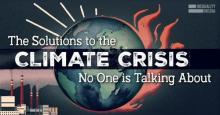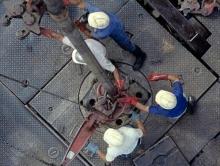At a time when climate science demands a rapid transition off fossil fuels, Ottawa approved more than $1.3 billion for oil and gas companies through the Canada Emergency Wage Subsidy (CEWS).
According to a January 2021 meeting note Canada’s National Observer received through a federal access-to-information request, “over $1.3B has been approved for the petroleum sector companies” as of Oct. 29, 2020 through CEWS.









